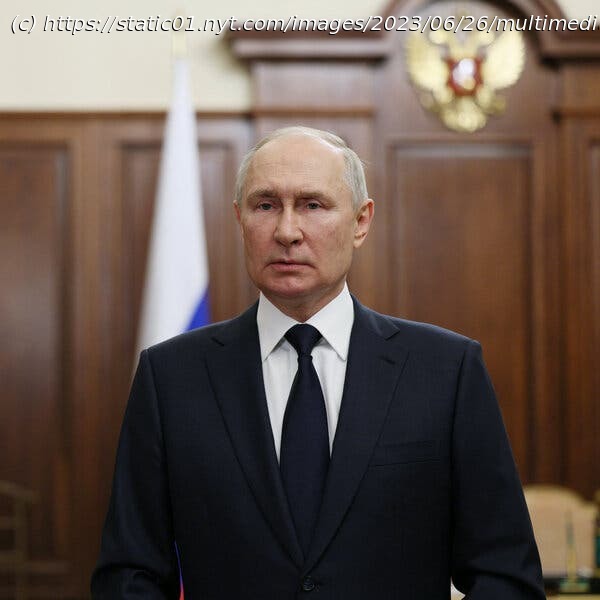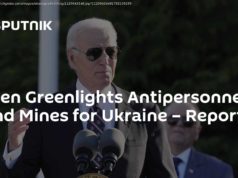An angry speech by Vladimir Putin.
Putin addresses the rebellion in Russia
Speaking publicly for the first time in two days, a visibly angry Vladimir Putin, Russia’s president, denounced as “blackmail” a weekend rebellion by the Wagner mercenary group even as he defended his response and hinted at leniency for those who took part.
Throughout the day, the Kremlin had sought to project an air of normalcy, unity and stability, despite Putin’s absence from public view after perhaps the most serious crisis of his two-decade rule. When he finally emerged, the Russian leader skirted a host of unanswered questions left by the revolt.
Putin did, however, indirectly address a question many had been asked since the mutiny began: Why was it not crushed, swiftly and mercilessly, by Russia’s much larger military? “On my direct instructions, steps were taken to avoid a lot of bloodshed,” he said. “This took time, including to give those who made a mistake a chance to change their minds.”
Response: Prigozhin, until recently a vital Putin ally, said in an 11-minute voice memo that his mutiny was not an attempt to seize power, but rather a protest of the Russian military’s plan to absorb his forces. He renewed his sharp criticism of Russia’s military leaders.
In Ukraine: Floodwaters have receded weeks after the destruction of the Kakhovka dam, allowing residents to finally return home.Takeaways from New Democracy’s victory in Greece
Kyriakos Mitsotakis, the leader of the conservative New Democracy party who has presided over a period of economic stability and stringent anti-migration policies in Greece, was sworn in yesterday for a second term as prime minister after a landslide victory that gave him a clear mandate for the next four years.
Here are some of the lessons from the results:
Tough migration policies are good politics. Voters appeared to reward Mitsotakis for his hard-line approach to migrants and for the significant reduction of arrivals in the country since the height of the migrant crisis in 2015.
Spying isn’t a deal breaker. It was revealed last August that Greece’s state intelligence service had been monitoring a prominent opposition leader. Analysts anticipated political fallout, but Greek voters mostly shrugged.
It’s the economy. After a decade-long financial crisis that erupted in 2010, Mitsotakis persuaded Greeks that the country had made enormous strides under his watch and that he deserved another four years to finish the job. (He had some good data to point to.)
The right wing rises in southern Europe. Conservatives are making significant inroads in Italy, Spain and now in Greece.Trump witness list will not remain secret
Aileen Cannon, the federal judge overseeing Donald Trump’s prosecution on charges of illegally holding on to national security documents, denied the government’s request to keep secret a list of 84 witnesses with whom the former president has been barred from discussing his case.






